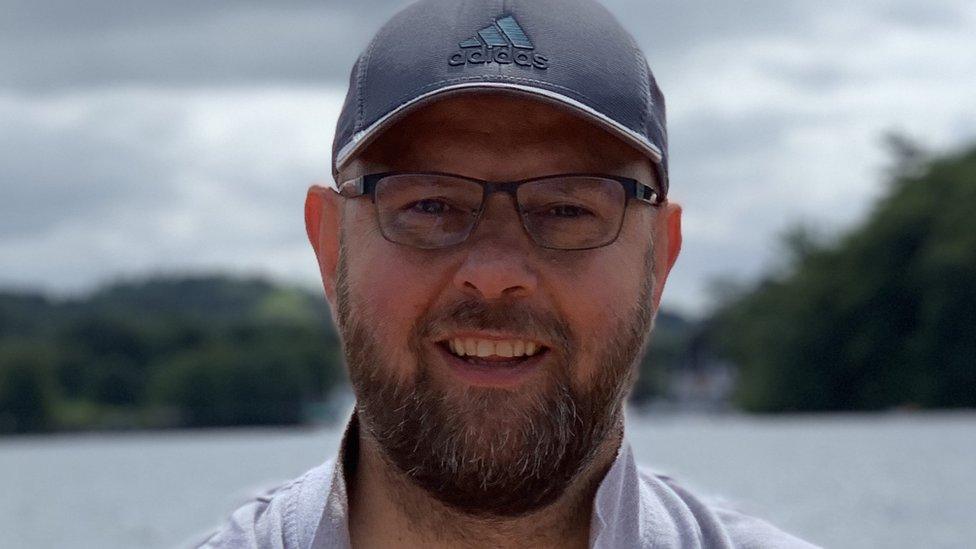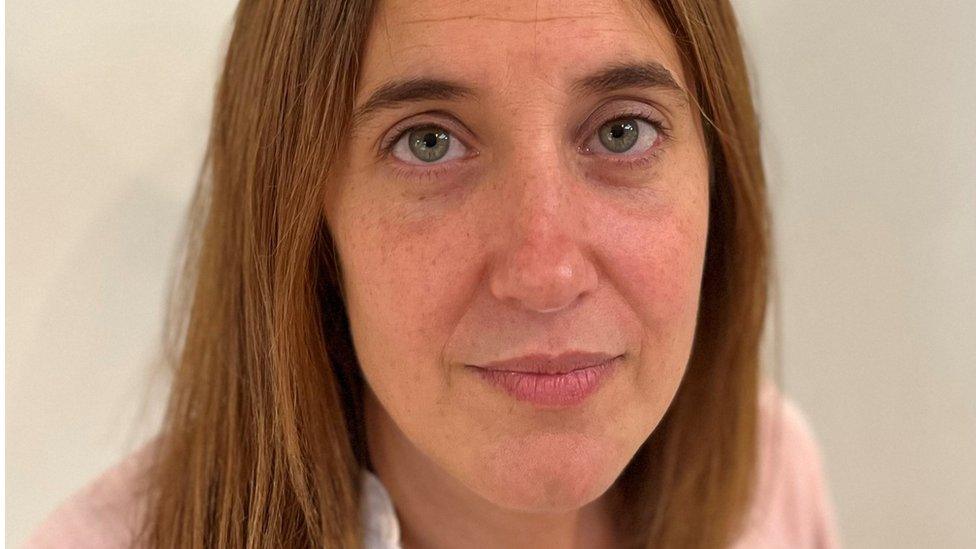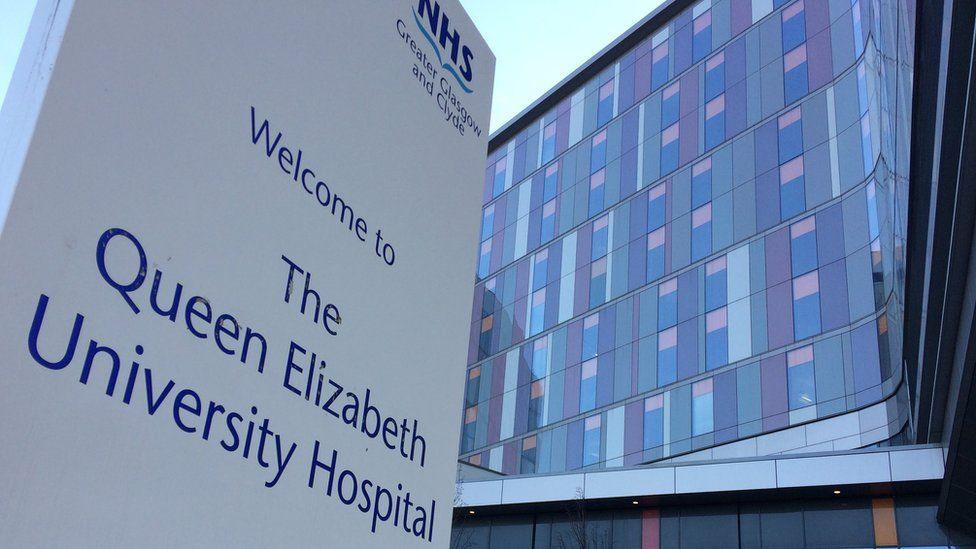Widow calls on Sturgeon to act over husband's hospital death
- Published

Andrew Slorance died nearly six weeks into his stay at Queen Elizabeth University Hospital
The widow of a Scottish government official who died after contracting Covid has called on the first minister to take immediate action against the hospital where he was being treated.
Andrew Slorance went into Glasgow's Queen Elizabeth University Hospital for cancer treatment a year ago.
His wife Louise believes he caught Covid and another infection there but that the details were concealed.
She says she does not accept that the health board has been honest with her.
And she has called on First Minister Nicola Sturgeon to step in to "stop these type of events happening in the future".
Mrs Slorance said: "Every minute the first minister waits to take action on the QEUH risks more families having to endure what we, and many other families, have gone through. Action needs to be taken now."
Father-of-five Mr Slorance was head of the Scottish government's response and communication unit, which was responsible for its handling of the Covid pandemic.
The 49-year-old official went in to the £850m flagship Queen Elizabeth University Hospital (QEUH) at the end of October 2020 for a stem cell transplant and chemotherapy as part of treatment for Mantle Cell Lymphoma (MCL).
He died nearly six weeks into his stay, with the cause of his death listed as Covid pneumonia.

Louise Slorance said she does not accept the first minister or the health board's response
But after requesting a copy of his medical notes, Mrs Slorance discovered her husband had also been treated for an infection caused by a fungus called aspergillus, which had not been discussed with either of them during his hospital stay.
The infection is common in the environment but can be extremely dangerous for people with weak immune systems.
Mrs Slorance believes it may have played a part in her husband's death but that it was deliberately covered up.
On Thursday, Nicola Sturgeon paid tribute to Mr Slorance in the Scottish Parliament, saying he was "greatly missed by everyone who had the privilege of working with him, and that includes me".
She pledged to ensure his family would get the answers they are seeking, adding: "I will not and this government will not tolerate cover-ups or secrecy on the part of any health board."
'Considerable upset'
Dr Scott Davidson, deputy medical director at NHS Greater Glasgow and Clyde, said clinicians' primary aim was to provide "professional care and treatment for our patients and support their loved ones".
He said his "heart goes out" to Mrs Slorance and that an offer of a meeting to discuss the issues had been made.
Dr Davidson added: "We don't act in bad faith or attempt to conceal information and that applies equally across the organisation to all of our staff, both clinical and non-clinical.
"To suggest otherwise is not acceptable and has caused considerable upset to all of our hard-working and committed staff."
However, Mrs Slorance said she did not accept the response given by the first minister, "and nor do I accept the claims from the health board that they were honest with us".
She said: "The health board claim they have been open and honest.
"Was it open and honest to have told me while my husband was dying that there was 'potential for additional infection' when the medical notes I only saw after Andrew's death revealed that tests had confirmed aspergillus three days before this, and that treatment had had to be escalated?
"This is not transparency, this is not honesty and it will not stop these type of events happening in the future."

Mrs Slorance insisted it had become clear to her since her husband's death that the health board were "selective in the information they provide".
She added: "I ask that all information shared with Scottish government regarding Andrew's case is shared immediately with myself, including the aspergillus case review which, despite requests, is yet to be shared with me."
NHS Greater Glasgow and Clyde said it was sorry that any questions Mr Slorance's family have around his care "have further added to their grief".
NHS Greater Glasgow and Clyde said that infection control procedures at QEUH were "rigorous and of the highest standard" and they were providing support to the Scottish hospitals public inquiry.
"We would urge Mrs Slorance and her family to meet with us to discuss the care provided and address the issues they have raised.
"We hope, by meeting, this will help to provide some comfort to the family at this time and will reassure them of our commitment to openness and transparency with all our patients and their families."
Scottish Labour's health spokeswoman Jackie Ballie said Mrs Slorance "and all the families who have campaigned against the failings at the QEUH, have shown real bravery".
She added: "The very least the first minister could do is take action to make sure the ongoing risk is dealt with and future patients are spared their torment.
"She cannot hide behind the process of a public inquiry to avoid taking action now to make this hospital safe."
- Published18 November 2021
